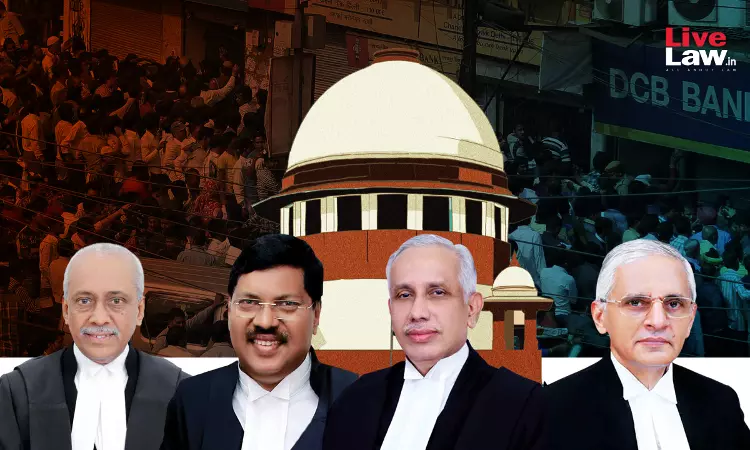Demonetisation Not Invalid Merely Because Some Citizens Suffered Through Hardships : Supreme Court
LIVELAW NEWS NETWORK
2 Jan 2023 7:37 PM IST

Next Story
2 Jan 2023 7:37 PM IST
The Supreme Court (4:1) observed that the demonetisation cannot be held invalid merely because some citizens have suffered through hardships or that the decision was taken in a hasty manner."The contention that the impugned notification is liable to be set aside on the ground that it caused hardship to individual/citizens will hold no water. The individual interests must yield to the...
